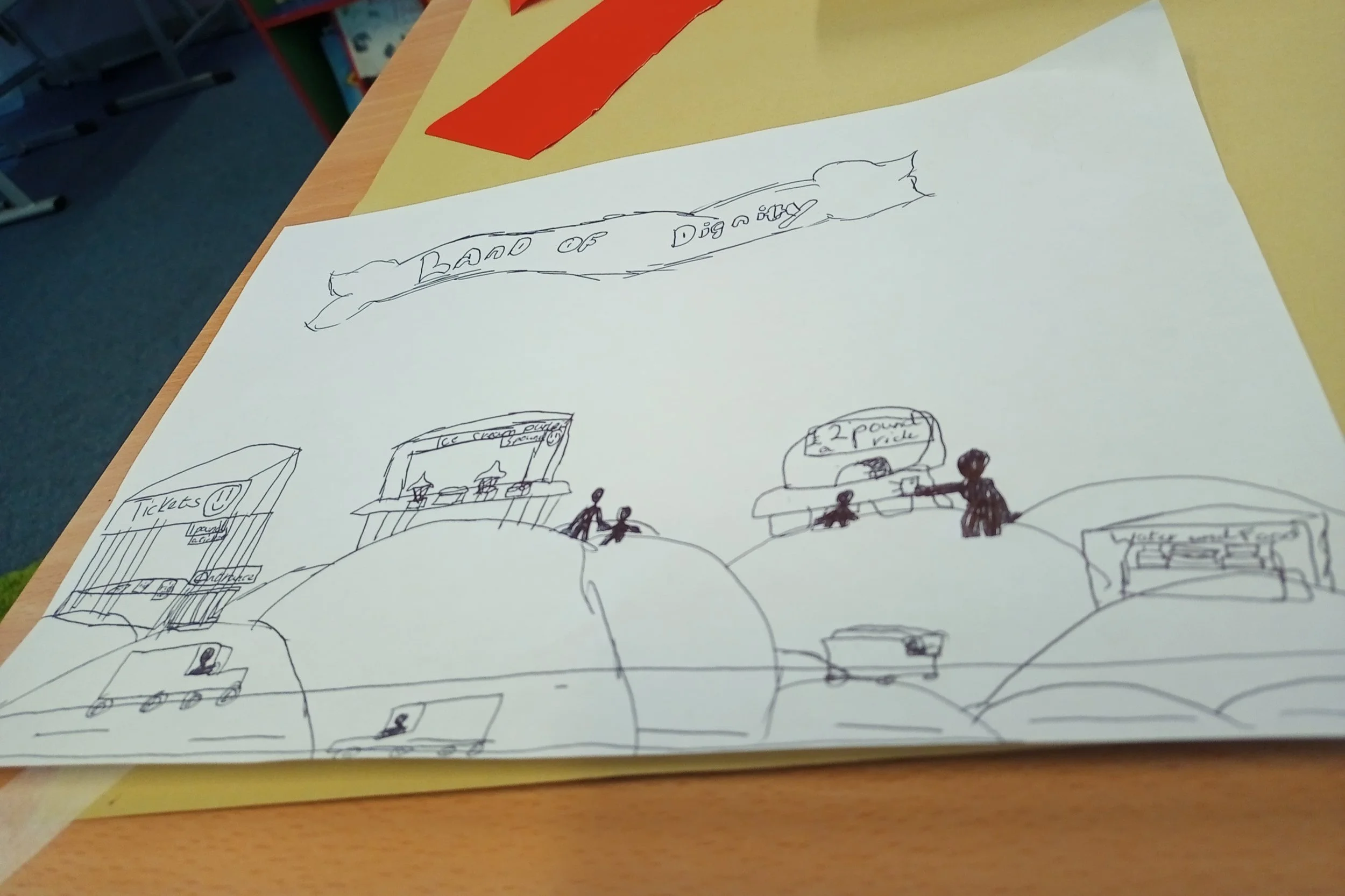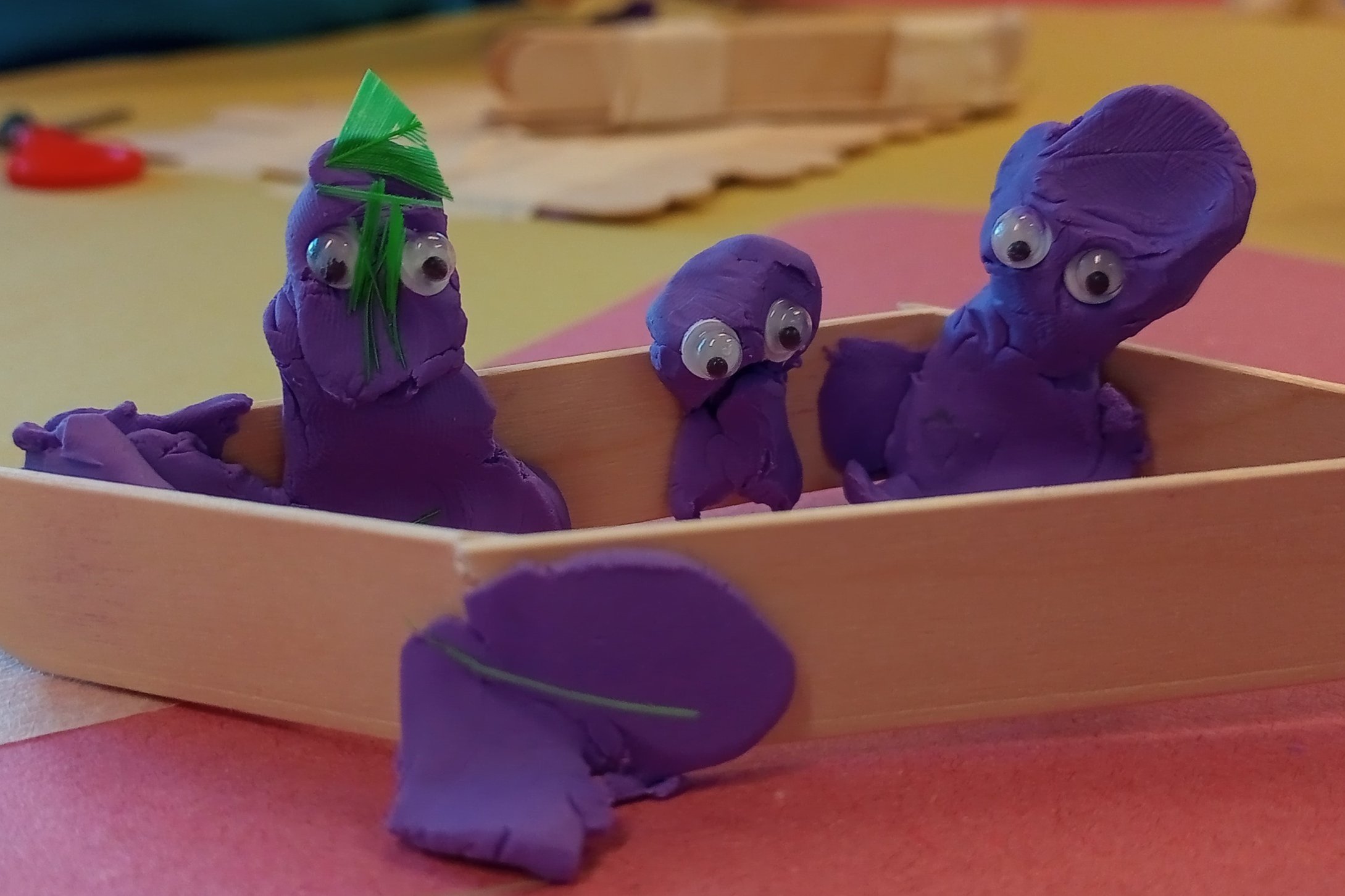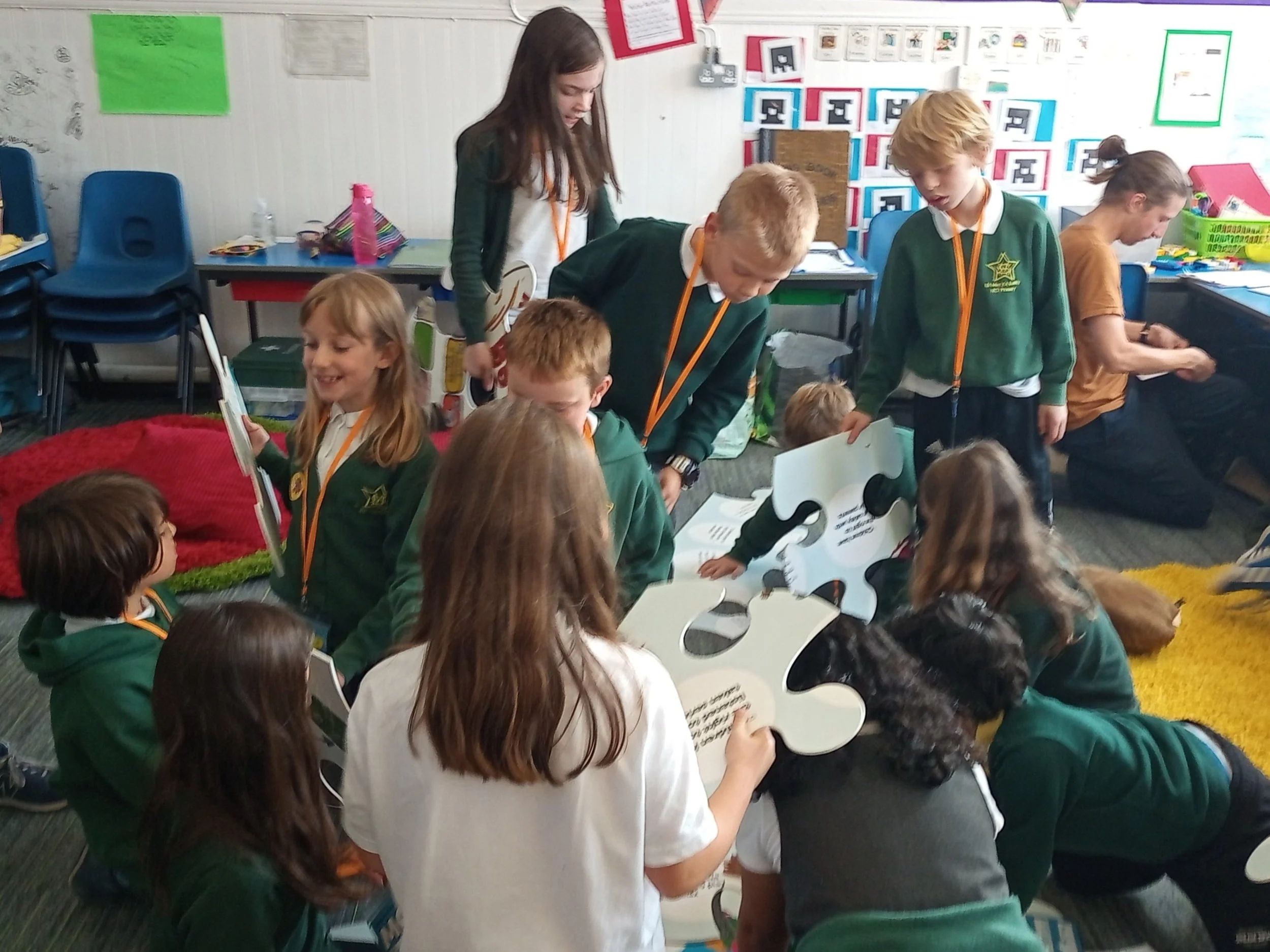Exploring Children’s Rights in AI
A new project with Children’s Parliament, Scottish AI Alliance, and The Alan Turing Institute.
Read more about the project on The Alan Turing Institute website here.
A new collaboration
Steph Wright, Scottish AI Alliance
Launched in March 2021, Scotland’s AI Strategy outlined the enabling principles to help guide the realisation of the strategy’s vision for Scotland to be a leader in the development and use of trustworthy, ethical and inclusive AI. In addition to the OECD’s five values-based principles for the responsible stewardship of trustworthy AI, the strategy also referred to UNICEF’s policy guidance on AI for children. As the first devolved nation in the world directly incorporating the United Nations Convention on the Rights of the Child (UNCRC) into domestic law, the strategy recognises that AI presents specific challenges and opportunities for children and it is key to involve them in the delivery of the strategy’s vision.
So we approached the Children’s Parliament (CP), who have over 25 years of rights based practice using creative, participatory and play-based methods to support children to meaningfully engage in decisions that affect them. In parallel to these early discussions, The Alan Turing Institute (ATI) was working with UNICEF on case studies in putting the policy guidance in action which was to contribute towards version 2.0 of the guidance and of course it made sense to ask them to come aboard the journey and months of discussion later, here we are, at the beginning of a very exciting 2 year project between the Scottish AI Alliance (SAIA), Children’s Parliament and The Alan Turing Institute!
The first phase, funded by the ATI will explore children’s rights and views in relation to AI. Phase 2 and 3, funded by the SAIA, will involve a deeper investigation by the children into AI and what it means to them and also how to mainstream their engagement and participation going forward.
We are super excited to announce that this project kicked off in late September with a series of workshops with schools in Edinburgh, Glasgow, Stirlingshire and Shetland! Let us hear from the teams at Children’s Parliament and The Alan Turing Institute on how they went…
The Alan Turing Institute’s workshop reflections
Mhairi Aitken and Janis Wong, The Alan Turing Institute
For us, this project is a culmination of two years’ research into children’s rights and children’s engagement with AI but it’s the first time we’ve actually been able to have these important conversations face-to-face with children. Our previous research with UNICEF explored public sector stakeholders’ views and experiences of engaging children with AI. It was clear from that research that there are many perceived challenges with doing this, but working with Children’s Parliament has shown very clearly that these challenges are not insurmountable and can be addressed through creativity, openness, curiosity and plenty of art materials! We’ve certainly learnt a lot about how to create the spaces and opportunities to have these important conversations with children.
Our previous research found that, while there have been studies looking at teenagers’ views on AI, there is a real lack of research or practice engaging primary school children with these topics, so it’s really exciting to be working with this age group and bringing their voices into shaping future directions with AI and AI ethics. Building upon this research, we kicked off this two-year long project by organising in-person workshops in schools around Scotland.
Going into the schools to run these workshops has been an amazing experience. We could never have predicted the range of wonderful, creative, and important insights the children expressed. There is something really special about the way these conversations are taking place – typically when children are engaged with topics relating to technology, the conversation starts with the technology but here we start with discussing children’s rights and human dignity and then introduce AI in that context, so the focus is on how AI relates to children’s rights and why their active involvement is key. That leads to very different conversations and really important ones.
Taking over those classrooms for the day, we not only learnt more about children’s interest in AI but also gave them the opportunity to help shape our future project directions. As we are pulling together our initial findings, some preliminary themes that have emerged from children include questions related to public and private uses of AI, safety, identity, and AI as imperfect systems. It is so exciting to be at this stage and have had the opportunity to be in schools talking to the children about AI, and all the more exciting that this is just the start of the journey!
Children’s Parliament Workshop Reflections
Sophia Georgescu, Children’s Parliament
We are delighted to launch this new two-year project with Members of Children's Parliament (MCPs) exploring children’s human rights and artificial intelligence. Our hope is to engage children and adults in a fun and creative journey, finding out what it means to be happy, healthy and safe as a child using AI in Scotland.
The team travelled to Shetland, Stirlingshire, Glasgow and Edinburgh to bring together our new ‘AI team’ of 90 Members of Children’s Parliament. We delivered a series of full-day workshops introducing the concepts of children’s human rights, human dignity, and the basics of what AI is and what it looks like in our everyday lives. It was a pleasure to work alongside the team at the Alan Turing Institute and the supporting staff at the 4 schools. A key part of our journey over the next years will be to build relationships between children, adults and Unfearties we meet along the way.
The children created Lands of Human Dignity to explore a central concept of children’s human rights and the UNRC:
'Land of Dignity' - MCP, Glasgow
“In the land of human dignity, children have the internet so they can use it to play and relax” - MCP, age 10, Shetland
“I made the friendship boat. These people have built a boat to go on an adventure. They don’t know where they are going but they know they feel safe.” MCP, age 10, Glasgow
We also got to know each other through games and a round of ‘People Bingo’:
MCPs in Glasgow respond to survey questions
MCPs in Edinburgh complete the UNCRC jigsaw
The children were very excited by the introduction of our old project mascot, Brochan. Brochan the Hedgehog is perhaps one of our most famous mascots – he supported our Climate Changemakers Team when they attended Scotland’s Climate Assembly in 2021, and memorably made appearances at Scottish Parliament and the New York Times Hub at COP26. The AI team will choose their own mascot for the next two years to travel across Scotland and represent the group. We are looking forward to seeing what our brilliant AI team explores over the next two years with our friends at the Alan Turing Institute and the Scottish AI Alliance.
Next Steps
We can’t wait to hear more from the delivery team on this project so please watch this space and follow our social media channels as well as those of Children’s Parliament and The Alan Turing Institute!
Scottish AI Alliance: Twitter, LinkedIn, Newsletter.
Children’s Parliament: Twitter, LinkedIn, Instagram: @childrensparliament, Become an Unfeartie, Unfearties are individuals who stand up for children’s rights.
The Alan Turing Institute: Twitter, LinkedIn, Project Website.





